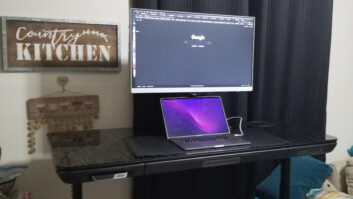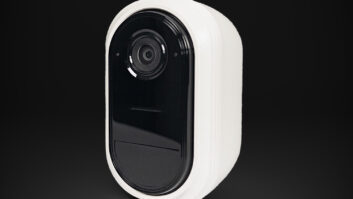The sensational attention generated by the now-infamous Aug. 9th police shooting of 18-year-old Michael Brown in Ferguson, Mo., has impacted the stock prices of at least two wearable CE camera manufacturers, and could have an effect on other camera suppliers going forward.
But whether or not this national calamity will turn into a newfound windfall for the burgeoning action video camera market will depend on how quickly the practice of outfitting police officers with body worn cameras is adopted on a nationwide scale.
The most immediate beneficiaries of the recent media frenzy are Digital Ally, which makes in-car and wearable video cameras targeting law enforcement applications, among others, and Taser, which manufactures video cameras specifically for law enforcement use.
Both firms have seen increases in their respective stock prices in recent days after the media picked up on petitions to the White House being circulated by outraged community groups demanding all law enforcement personnel be required to wear the diminutive cameras on the job.
Digital Ally apparently seized on the action by issuing a press release saying that several law enforcement agencies had asked about its FirstVU HD Officer-Worn Video System following the shooting.
“An audio/video recording often proves to be invaluable in court because it can answer critical questions regarding inappropriate actions by either the law enforcement officer or the person who may have broken the law,” the company said in a statement. “Some state governments are considering legislation that would require all law enforcement vehicles and officers to be equipped with some sort of audio/video recording capabilities.”
Publicly traded Digital Ally’s share prices rose as much as 80 percent to $14.25 on Monday and closed 57 percent higher at $12.50.
According to a Reuters report, more than 24 million shares changed hands on the Nasdaq during the day, resulting in the highest levels seen for the stock since October 2013.
Market analysts have stated that investors are likely speculating that the shooting will generate wide adoption of video cameras and non-lethal weapons for police officers.
While a large number of companies now make wearable video cameras, Taser, Vievu and Digital Ally have long made products specifically for law enforcement and military applications.
Digital Ally has compact shirt-, eyeglasses- or belt-worn video cameras that sell for around $800.
Similarly, Taser International sells Axon cameras for around $599 that can be easily clipped to clothing and belts.
Vievu offers a more affordable solution in its Vievu2 camera carrying a $349 suggested retail.
Regardless of what model state or municipal police departments choose, the expense of adding cameras could be significant for the local tax rolls.
But the expense may be well worth it. Advocates for camera legislation have cited recent studies showing a dramatic decline in inappropriate conduct among both citizens and police officers when cameras are worn on the job.
Still, the recent gains in stock prices in some cases run counter to the companies’ individual performances prior to the shooting, so how this turns out will be interesting to watch on a number of levels.












